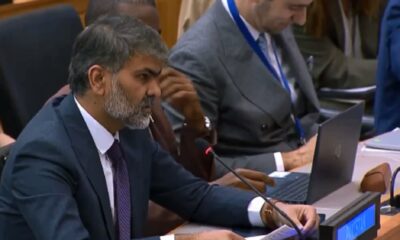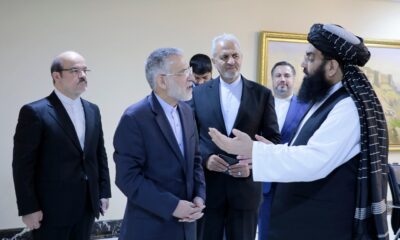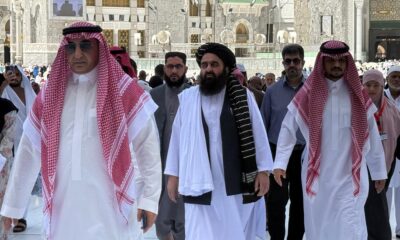Latest News
Taliban remain vague and non-committal about peace talks: Abdullah
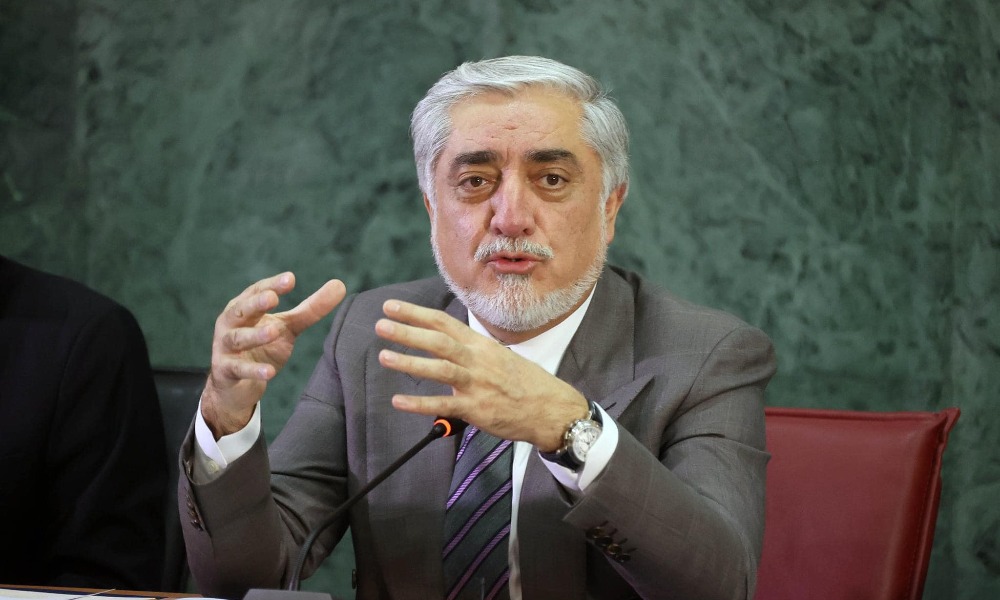
Afghanistan’s chief peace negotiator Abdullah Abdullah says there is currently no contact between the Afghan Republic’s talks teams and the Taliban’s representative and that the group continues to remain “vague” on the future of negotiations.
In an interview with VOA, Abdullah, who is chairman of the High Council for National Reconciliation, was asked whether there was any contact between the two teams. His answer was a definitive “No!”
“They leave their positions vague. They say, ‘We want the establishment of an Islamic system,’ but don’t explain what that means. How will the leaders be elected or selected? They want an Islamic Council. Is it elected? If elected, on what basis? They don’t share,” he said.
Abdullah also stated that different groups of Taliban make contact from time to time. “Sometimes they send notes. The messages are mainly the same. Even in the letter (sent to politicians recently), the position is very vague, and you cannot tell whether it is the position of one group or all.”
He also said that with the announcement of the withdrawal of foreign troops, the Taliban’s “position has changed.”
“Their chief negotiator has gone to Pakistan to consult with their leaders, to take directions, to shape up their position. Earlier their position was that they are going to attack the international forces.
“So, as far as the Doha process is concerned, it is still important. So are other opportunities like the conference in Turkey [the Istanbul conference]. It has to be a meaningful event, and both sides have to come to an understanding to make it effective,” he said.
The Taliban has however until now refused to attend the Istanbul Conference, saying they will only participate once all foreign troops have withdrawn from Afghanistan.
“If they don’t come to a meeting, which is supposed to be between both sides, then the conference will not take place. They haven’t said that they are not coming. They haven’t said that they are coming. That has been the problem negotiating with the Taliban all along. They always keep their position vague,” Abdullah said.
On the withdrawal of troops, Abdullah said there is concern that the “Taliban position might get further emboldened” after foreign forces leave.
“Well, as far as their excuses, or the reasons that they were giving, that it is because of the presence of the international forces, it’s ‘jihad’ against foreigners and so on and so forth, so, in three months time, perhaps in less than three months time, there will be no foreign troops on our [Afghanistan’s] soil.”
He also said he “hopes” and “wishes” the Taliban want peace adding “otherwise, the war will continue.”
Abdullah stated that a civil war cannot be ruled out but said: “Let’s not lose hope because it will be a worst-case scenario. So, at this stage, the whole focus should be on how to make it (peace) work.”
Latest News
Pakistan urges global community to block arms flow to militant groups in Afghanistan

A Pakistani diplomat on Saturday called on the international community to block the flow of modern and sophisticated weapons to militant groups in Afghanistan.
“Terrorist armed groups are in possession of billions worth of illicit arms abandoned in Afghanistan,” Syed Atif Raza, a counsellor at the Pakistan Mission to the UN, told an Arria-Formua meeting of the UN Security Council, convened by Sierra Leone.
“We call upon our international partners to recover the vast stockpile of abandoned weapons, prevent their access to armed terrorist groups and take measures to close this thriving black market of illicit arms,” he said.
Pakistani officials have repeatedly claimed that attacks in the country are planned in Afghanistan and that militants use weapons left behind by foreign forces.
The Islamic Emirate, however, has denied the claim, saying Afghanistan is not responsible for Pakistan’s “security failure”.
Latest News
Gandapur says no Afghan refugee will be ‘forcefully’ expelled from Khyber Pakhtunkhwa
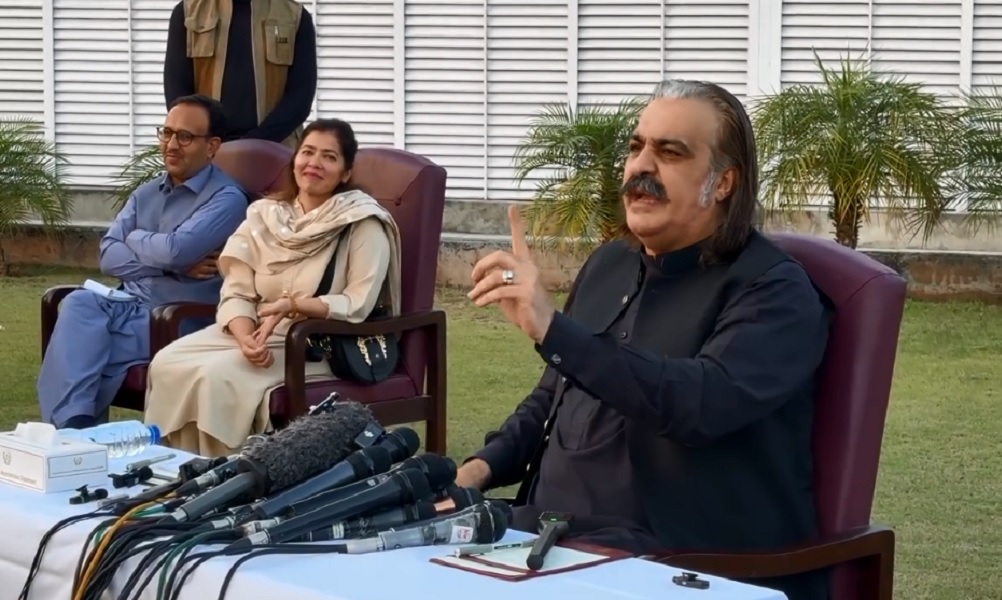
Amid rising tensions over Pakistan’s repatriation plans for illegal Afghan nationals, Khyber Pakhtunkhwa Chief Minister Ali Amin Gandapour said on Friday that no refugees will be forcibly deported from the province.
“We will not allow any Afghan refugee to be expelled by force from Khyber Pakhtunkhwa. We stand firmly against such inhumane deportations,” Gandapur said at a press conference.
The remarks came as the Pakistani government ramps up efforts to repatriate undocumented Afghan refugees and Afghan Citizen Card (ACC) holders, following the expiration of the voluntary return deadline on March 31, 2025.
“The past situation, where Afghan refugees, including women and children, were stranded at the border, tarnished Pakistan’s image,” Gandapur said, reaffirming the provincial government’s commitment to a dignified repatriation process.
“We are setting up camps for voluntary repatriation, and anyone wishing to return will be helped. However, we will not forcibly expel any Afghan refugee,” he stated.
Afghans holding Afghan Citizen Cards (ACC) — issued by Pakistan authorities and held by 800,000 people, according to the United Nations — face deportation to Afghanistan after the deadline.
More than 1.3 million Afghans who hold Proof of Registration (PoR) cards from the UN refugee agency, UNHCR, are also to be moved outside the capital Islamabad and neighbouring city Rawalpindi.
Latest News
IEA has 46 township plans for returnees, minister tells visiting Iranian official
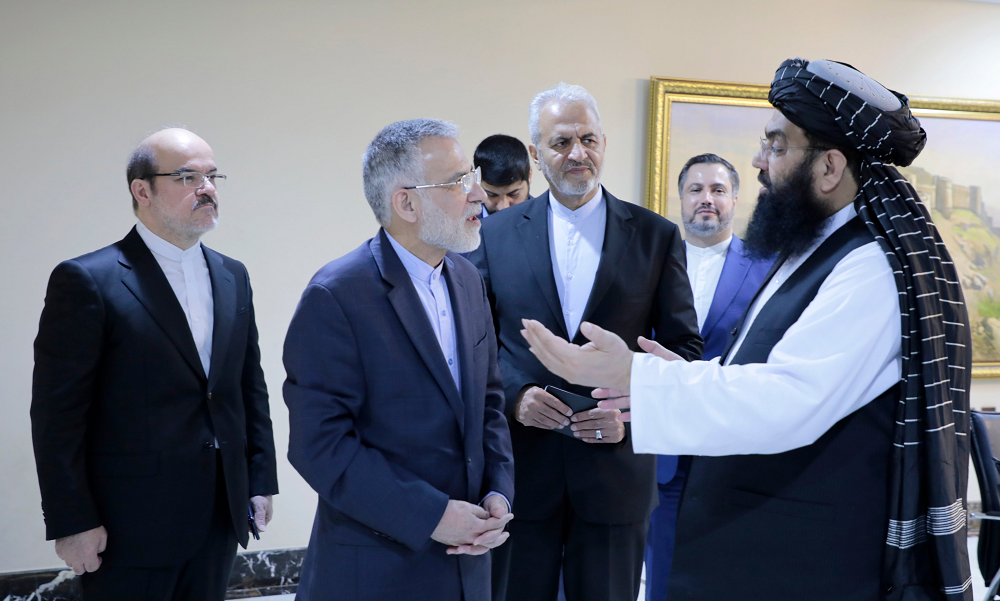
The Islamic Emirate of Afghanistan (IEA) has 46 township plans for returning refugees, Acting Minister of Refugees and Repatriation Mawlawi Abdul Kabir told a visiting Iranian diplomat in Kabul, calling on Tehran to give refugees time to return.
According to a statement issued by the ministry on Saturday, Abdul Kabir said during the meeting that Afghanistan and Iran are friendly neighbors that have many commonalities.
He stressed the need to further develop and strengthen relations between the two countries and said that the frequent visits of high-ranking Iranian officials show that Tehran wants positive and friendly relations with Afghanistan.
Abdul Kabir thanked Iran for its assistance and hosting of Afghan refugees, saying that Iran and Pakistan have been hosting Afghan refugees for the past few decades. He called for more leniency in the treatment of migrants.
He said that the Islamic Emirate is preparing a mechanism to provide legal documents for those migrants whose legal residence in Iran has expired.
In the meeting, Mohammad Reza Bahrami, Iran’s new Assistant Minister and Director General for South Asian Affairs at the Foreign Ministry, invited Abdul Kabir to visit Tehran, and called for repatriation plan to be shared before the trip.
He stressed on the humane treatment of Afghan refugees and appreciated the Islamic Emirate’s initiative to build 46 townships, calling it an important step forward for the return of refugees.
Bahrami noted that there are currently eight million Afghan reguees living in Iran, of whom four million are undocumented or have their residence expired.
-

 Latest News4 days ago
Latest News4 days agoAfghanistan’s reconstruction is in the interest of EU: Uzbek president
-

 Latest News5 days ago
Latest News5 days agoUS won’t rest until all Americans detained in Afghanistan brought home: Rubio
-

 Latest News3 days ago
Latest News3 days agoMinistry of Economy calls on US to release Afghanistan’s frozen funds
-

 Latest News4 days ago
Latest News4 days agoBulgaria brings five people to trial over deaths of 18 Afghan migrants
-

 Latest News3 days ago
Latest News3 days agoPakistan ‘extends’ deadline for a week for Afghans to leave the country
-

 Regional5 days ago
Regional5 days agoChina launches military drills around Taiwan, calls its president a ‘parasite’
-

 Business4 days ago
Business4 days agoGold climbs to record high as tariff worries bolster safe-haven demand
-

 Sport4 days ago
Sport4 days agoIPL 2025: Batters in race for prestigious Orange Cap


